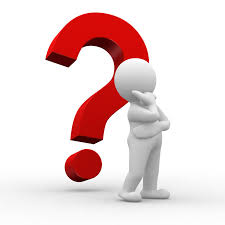Not every business has a procurement policy and in some cases it’s actually damaging not to have this document as public funding can stipulate that the requirements for funding requires you to have one. The reason being that it ensures transparency and that when you buy goods and services, you have a policy to follow ensuring you get consistent value for money.
Even if you aren’t applying for public funding, it’s still a good idea to have a procurement policy in place for you and your staff to follow. It sets the guidelines in clear terms for everyone to follow and consistently obtain value from selected partners.
Work your answers to these 5 questions into your procurement policy
1. Will bulk purchasing discounts really reduce costs or add to storage costs?
The majority of B2B suppliers will look to get a favourable order on a regular basis. To do so, you’ll find bulk or combined services are offered in order to maximise billings for the supplier. This doesn’t always equate to value to you though as you could agree to bulk price discounts only to find you aren’t using what you pay for, which can increase your holding/storage costs.
2. Will you need to engage knowledge partners to speed up the time it takes to obtain a specialist service?
For technical services for your IT department, or tech equipment you’re buying or leasing, do you have enough knowledge to know what you’re agreeing to?
For more expensive and what could be considered specialist services, you don’t really want to be relying on a supplier you haven’t done business with before. You’d be going on the recommendations of others at best.
A more informative approach would be to hire a knowledge partner or outsource to a specialist partner with the knowledge to listen to what you need, provide you with an assessment and engage with suppliers on your behalf. If you’re not confident in approaching certain sectors, it may be worth including in your policy what you’ll do in the event you need a specialist service.
3. How many of your employees will have the authority to buy goods and services and to what amount?
As this will be a procurement policy for the long term, you want to make it as evergreen as possible. Plan it with growth in mind by including members of your staff who will be authorised to engage with suppliers for any goods and services their department requires.
It may also be worth having someone senior in your company named as a procurement officer who signs off on purchases before any other member of staff can proceed with ordering goods and services, or at least allocate budget amounts per department with anything exceeding the department budget requiring authorisation.
4. What will be your selection criteria for awarding contracts?
It’s much easier to award contracts to the right supplier when you set out clear terms of what you’re looking for from them. As an example, you could choose to look for the following criteria for suppliers to meet:
· Quality
· Cost
· Use of resources / green initiatives
· Reputation
· Guarantees
· Service consistency
· Customer service
In cases when there’s high competition, using a selection criteria as a checklist will help you narrow down your potential pool of candidates to progress into discussion with.
5. How much information needs to be revealed while maintaining commercial confidentiality?
There are going to be some contracts requiring you to grant informational access to third party organisations. This is increasingly happening with e-services, operating via the cloud. You must be in complete control of confidential data within your organisation and should consider how much you really need to disclose to third party suppliers.






